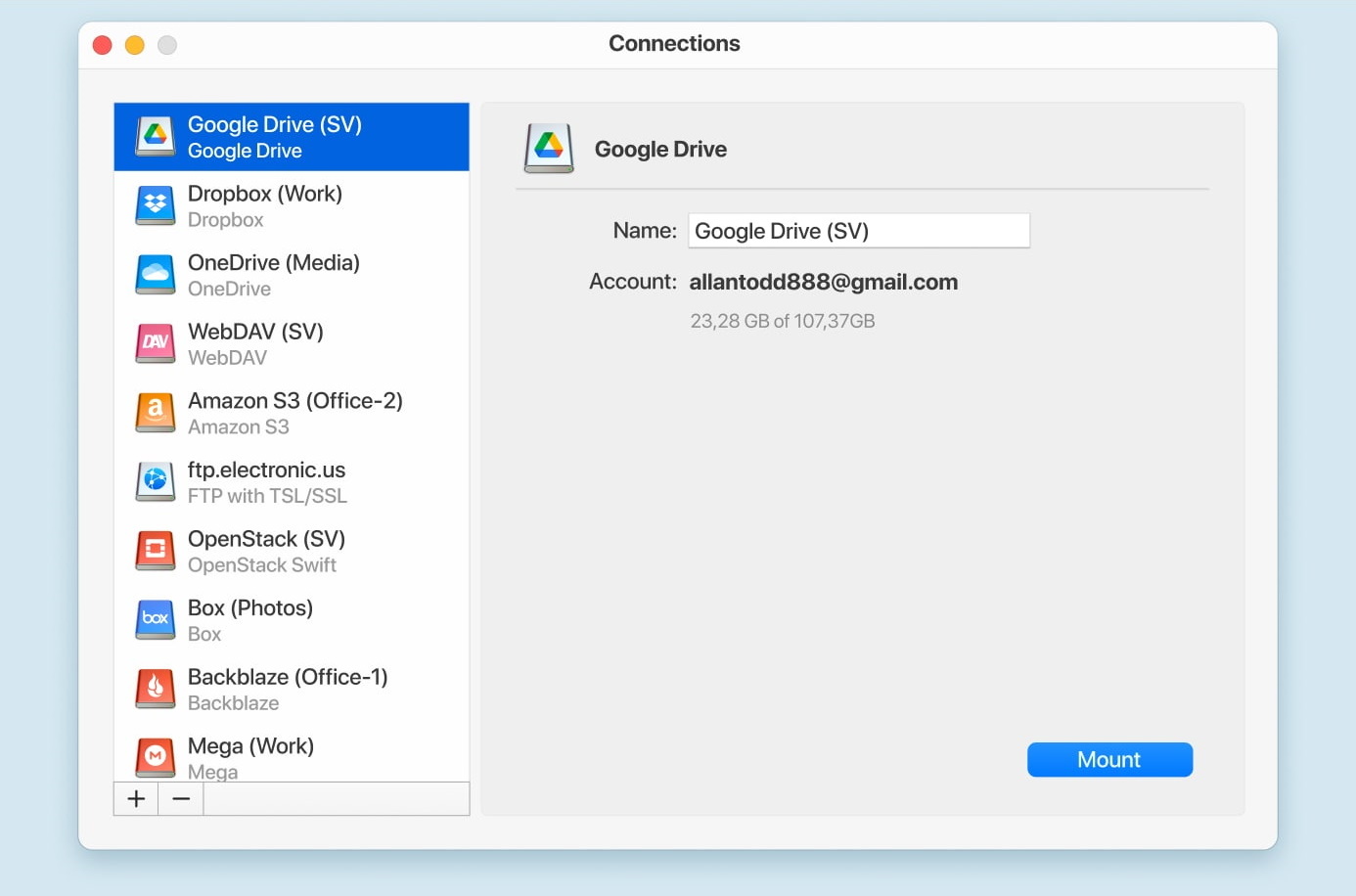
GOOGLE CLOUD FOR MAC ANDROID
And despite it being possible to download iCloud clients for Windows and Android devices, using them is a clunky and, at times, frustrating experience.
GOOGLE CLOUD FOR MAC PC
The platform’s apps are great for working with other Apple users but struggle as soon as a PC is thrown into the mix. Unfortunately, iCloud struggles beyond the Apple ecosystem. From an Apple or iCloud-enabled device, it ensures all your data is secure and available when you need it. This is because the platform is fully integrated into these operating systems and functions almost entirely in the background.

In short, Google Drive is equally at home on both Apple and Windows devices.Ĭontrastingly, and perhaps unsurprisingly, Apple iCloud is most at home on iOS, macOS, and iPadOS devices. It is intuitive to use and responsive even in poor network conditions, and we frequently use it in place of the desktop and mobile apps. Google Drive’s web app is also the best we’ve seen. Apps are available for the platform iOS, macOS, iPadOS, Windows, and Android. Google Drive is, overall, the more compatible and widely supported of the two platforms. Unfortunately, Google’s ambiguous privacy policy isn’t particularly reassuring.Īpple also provides end-to-end encryption for some data categories (Image credit: Apple) iCloud vs Google Drive: Performance This means that data stored on the platform could, in theory, be accessed by Google employees or anyone that Google provides your data to, including law enforcement.

Google also encrypts data both in transit and at rest, but offers no end-to-end encryption. There are also several data categories (iCloud Keychain/iCloud tabs and Safari History/Wi-Fi passwords) that are encrypted from end-to-end. Both platforms enable you to use multi-factor authentication, which we highly recommend.Īlmost all data stored on iCloud’s servers is encrypted both in transit and at rest to 128-bit AES standard. ICloud is the more secure platform, although Google Drive has made several necessary steps forward recently. However, before moving on, we need to consider each platform’s security features. On this basis, we give Google Drive a slight win. This makes the platform more suitable for creatives who are constantly co-designing with colleagues and pitching content to clients. Google Drive also offers better collaborative features, such as shared drives. This is ideal if you’re a freelancer or anyone working with more than one organization or volunteer group. However, we do like that Google Drive enables you to log into several accounts and swap between them easily. In fact, there’s very little to distinguish the two platforms when it comes to the nitty-gritty of storage-related features.

Personally, however, we find Google Drive works best with these third-party suites. With no doubt, Google Chrome is currently one of the most used web browsers if we take into account that is sponsored and supported by Google and it works very well.Both platforms can also be integrated with the Adobe Creative Cloud suite as well as other creative suites such as Affinity. Run applications in new tabs, open as many tabs as you want, see a list of the most visited websites and access them just clicking their thumbnails.įinally we have to say that it uses WebKit, and it works really fast and well. It's fast and clean, the colors offered gives you a good sensation when using it.

Google Chrome is also ahead in terms of security, it will warn you if you try to access potentially dangerous sites. The address box is called Omnibox, that prefix Omni tells us that we can do everything from within that box, in fact you only have to type the internet address you want to access or the word you want to search, it doesn't matter, once you type it, you can choose if you'll search for the word or if you will access that website. Google said that it was easy, fast and very usable, and that's what we have checked when we have downloaded and tested this amazing web experience. Everybody was surprised when Google decided to release a new web browser, its name: Google Chrome.


 0 kommentar(er)
0 kommentar(er)
